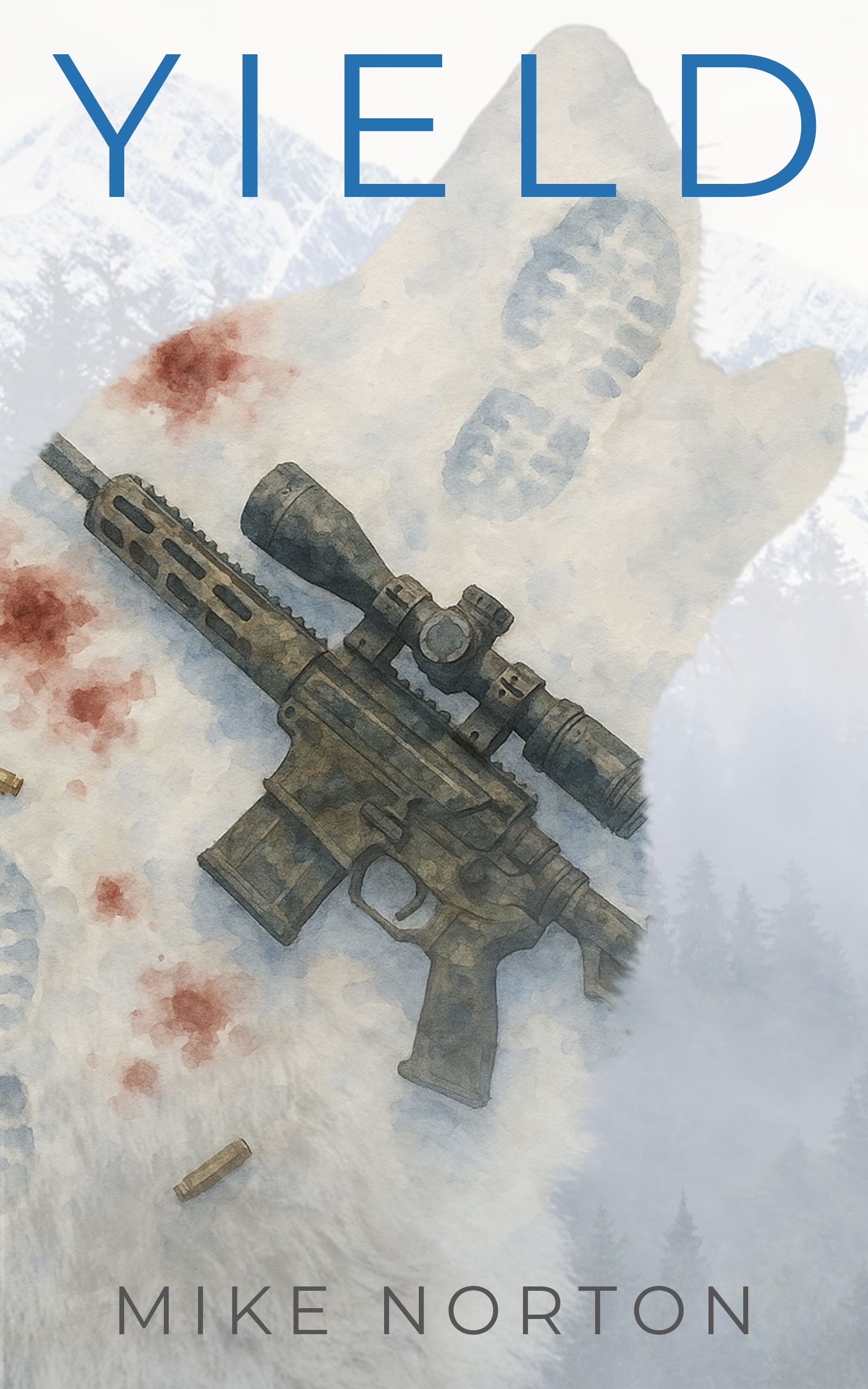Description
“I am not special. If I would die, then I would merely join the annals of countless other flawed men throughout history who have upheld what should be the mere standard of what any man would do for those he loves. For his people.”
A former Navy veteran turned scientist finds himself reluctantly taking his teenage son into the Alaskan wilderness to field-test a classified military prototype produced by his startup—but when disaster strikes, what was meant as a straightforward test becomes a rite of passage neither of them expected.
After a nearly 15-year hiatus from creative writing, having grown as a person throughout a multitude of experiences around the world, Norton returns to the world of literature with a writing style that punches the reader with the beautiful and metaphorical survivalism of Jack London, yet with the emotional and egoistic restraint of Hemingway.
Vastly different from the style of his debut memoir, most of the story of Yield is told by what isn’t said in between the lines of each chapter as Norton delivers a haunting tale of fatherhood heavily inspired by his actual lived experiences.
Yield is a philosophical novella about fatherhood, legacy, and what it means to overcome inner weakness to provide, protect, and raise children in a frozen world that breaks everything but the truth—a literary love letter to his actual children about what it means to be a man.
Supporting Work For Yield:
Read supporting articles written by the author to more deeply understand the symbolism or elements within the story.| Article | Abstract |
Yield Is An Authentic Norse Saga |
Most of what’s labeled “Norse” today is shallow aesthetic cosplay. Yield isn’t that, but about the functional inheritance of the Norse worldview in a modern family in which yesterday’s bow and arrow is today’s high-powered precision rifle. It’s a soul-deep reflection of legacy, masculinity, sacrifice, and honor told through the raw bond between a father and son in the frozen Alaskan wilderness. This article explains how Yield carries the mythic weight and emotional bloodline of true Norse storytelling—in a practical, modern way. |
What Does It Mean To Be King? |
Being a king isn’t about your people being on their knees worshipping before you—it’s about bearing the unbearable as you lead from the front without breaking those behind you. This article explores the difference between performative masculinity and sacred leadership: the kind that protects, provides, and bleeds quietly so others don’t have to. A king doesn’t ask for loyalty—he earns it through burden. This is what separates boys who crave power from men who carry it. |
The Pagan Who Would Carry A Cross |
He walked into a Catholic church like a shadow—and walked out carrying a cross. But he never bowed. This article explores one of the most emotionally charged scenes in Yield, where Erik—a Norse pagan and father of the main character—visits an old war buddy turned priest. What unfolds is not a conversion, but a reckoning. A meditation on free will, moral integrity, and the meaning of redemption outside the bounds of doctrine. Written for Christians and non-Christians alike, this piece invites the reader to wrestle with a difficult question: What kind of God punishes a man for being exactly the creation He designed? |



I follow Mike on social media. He always has an interesting insight on things so I’m sure the book will be a great read!
Thank you very much. I hope my work doesn’t let you down.
Saving this to purchase first of next month. Sounds absolutely riveting. Your writing style draws one in.
Thank you very much. 🙂 That’s an honor.
This is very impressive writing. I look forward to reading your work. It’s so good to see younger folks writing again. Thank you.